Through an unusual partnership between the BMW Foundation and the UNDP Guinea-Bissau Accelerator Lab, the Solution Clinics were developed, bringing together solution holders working to achieve Agenda 2030.
Achieving Agenda 2030 through Responsible Leadership
January 18, 2023

Twenty Thirty Blog - Bayo Akomolafe on Listening to the Noise and Leading through Play
In January 2022 the United Nations Development Programme’s (UNDP) Accelerator Lab in Guinea-Bissau began its partnership with the BMW Foundation. The partnership was founded on the common understanding and commitment to the Agenda 2030. The Agenda 2030 consists of the 17 SDGs which are integrated— and recognize that action in one area will affect outcomes in others, and that development must balance social, economic and environmental sustainability. The world has committed to prioritising progress for those who are furthest behind. The SDGs are designed to end poverty, hunger, AIDS, and discrimination against women and girls amongst other important societal challenges. The creativity, knowhow, technology and financial resources from all of society is therefore necessary to achieve the SDGs in every context and in every corner of the planet.
Given the current climate of unprecedented global emergencies and the COVID-19 pandemic, it has become crucial, now more than ever before, to create unusual partnerships and enable new ways of approaching challenges to accelerate the achievement of Agenda 2030.
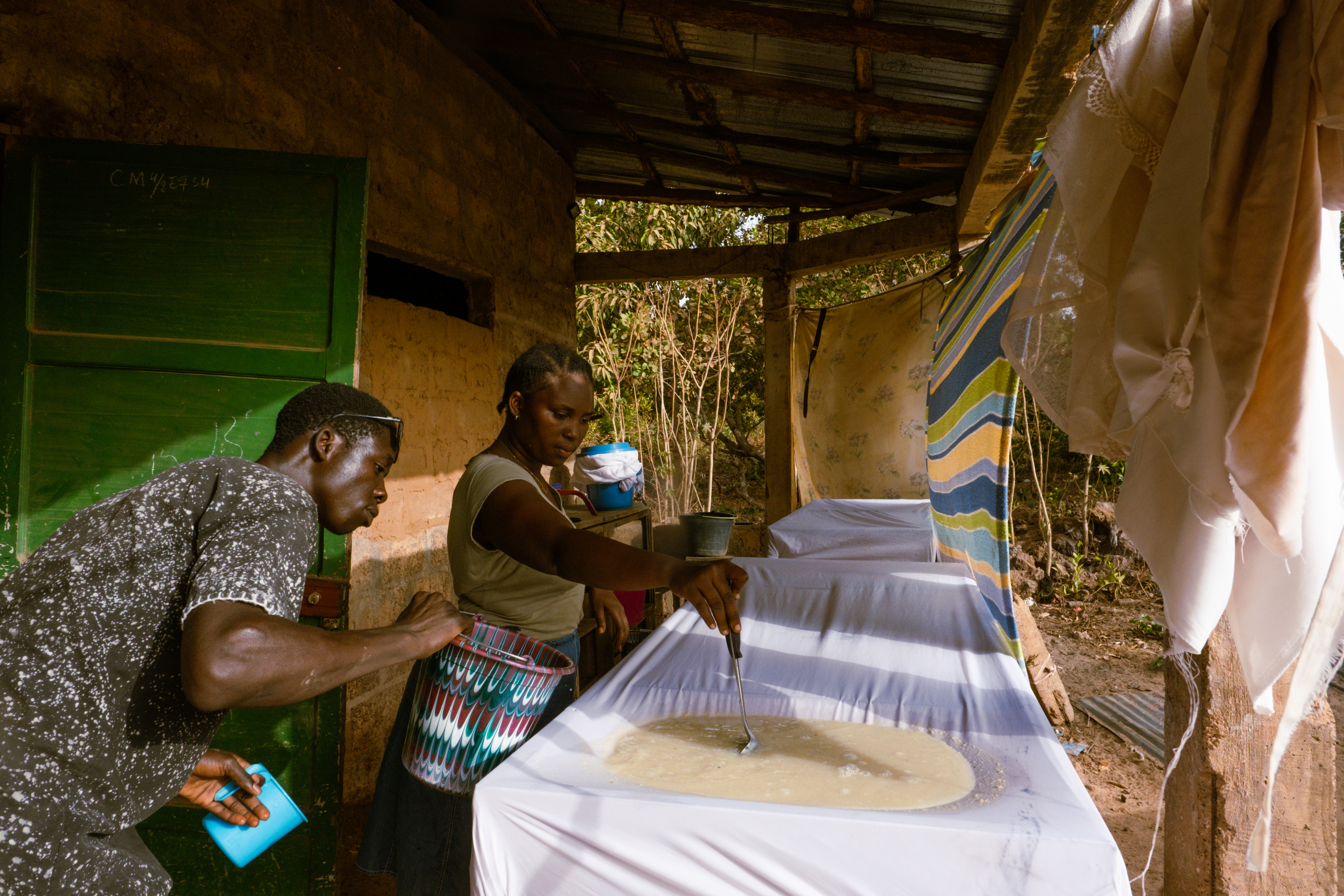
Young entrepreneurs using traditional methods of making cashew juice. Photo: Ricci Shryock
Responsible Leadership at the BMW Foundation
The BMW Foundation promotes responsible leadership and inspires leaders worldwide to work towards a peaceful, just and regenerative future. Through its activities, the foundation aims to advance the Sustainable Development Goals of the United Nations 2030 Agenda.
The BMW Foundation inspires leaders, through leadership programs and encounters, to take their social and political commitment to the next level – across communities, cultures and countries. It connects leaders through the global BMW Foundation Responsible Leaders Network, a diverse, collaborative and joyful community that drives positive change through collaborative action. The foundation further invests in the future, supporting economic and financial system transformation within the framework of the UN Sustainable Development Goals, with the aim of achieving a healthy balance of economy, society and environment.
At the heart of its mission, the BMW Foundation believes that every human being can make a crucial contribution to positive social change. The individual commitment of leaders is reckoned a unique lever for change. For people in positions of responsibility have a key impact on organizations and institutional structures. A Responsible Leader is a leader who, beyond his or her professional and personal duties, works towards social change within and between societies – across communities, cultures, and countries. Responsible Leaders perceive social and political challenges in a larger context. They use their knowledge, networks, and influence to deliberately work for a better world. In this, they are guided by a deep respect for other people, their background, identity, and dignity.
The BMW Foundation catalyses, connects and works with the global Responsible Leaders Network that consists of almost 3000 individuals across the globe.
Solution Clinics
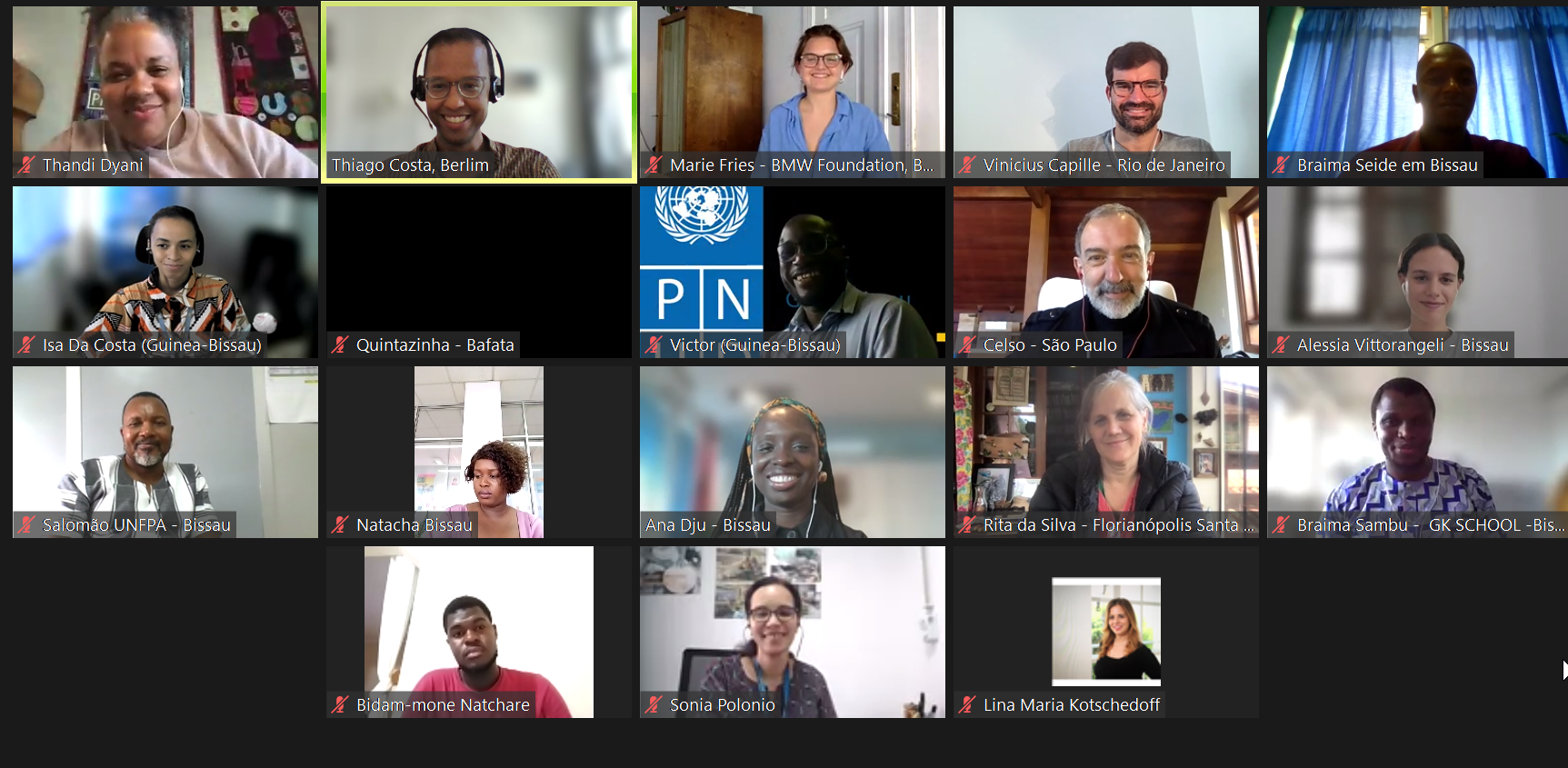
2nd virtual Case Clinic with BMW Foundation, Solution Holders, Responsible Leaders and UN Agencies.
The “Clinica di Soluson” also known as Solution Clinics creates an opportunity for individuals or change makers in the networks of the Lab in Guinea-Bissau tackling the SDGs, to share their experience with lusophone members of the BMW Foundation Responsible Leaders Network (RLN) and those of UN agencies. The intention is to foster connection and collaboration as a first step and to offer solution holders a look at their challenges in a new light and tackle it via new perspectives. This initiative was inspired by the Cabo Verde Accelerator Lab's Open Day.
The idea of the Solution Clinics methodology is to explore a challenge that a solution holder sits with, whilst concurrently, being a space of active or deep listening. As mentioned, the intention is to not offer solutions per se, but really sense what the solution holders are revealing and feeling, and continuously ask questions to find the source of the challenge. These Solution Clinics serve as a tool to assist in verbalising a problem or maybe even fear, to lend an ear, journeying together to assist the solution holder in answering the challenge themselves.
In this sense, the Solution Clinics methodology offers a space of deep trust, connection and empathy which are critical leadership skills to foster a new much-needed leadership paradigm. The dominant leadership style we live and have lived until now has brought humanity many successes and innovations both technologically and socially, but is also the leadership that brought humankind to the volatile, unprecedented state of crisis we find ourselves in today. The dominant leadership style has narrated one-sided stories and muted others, and it has worked to empower and enrich only the few. The work of the Accelerator Lab as well as the BMW Foundation offers to inspire and work towards new ways of tackling, accelerating and scaling new ways of thinking. The solution clinic is a small step towards enabling a new paradigm as well as a pathway to collaborate to attain the Agenda 2030.
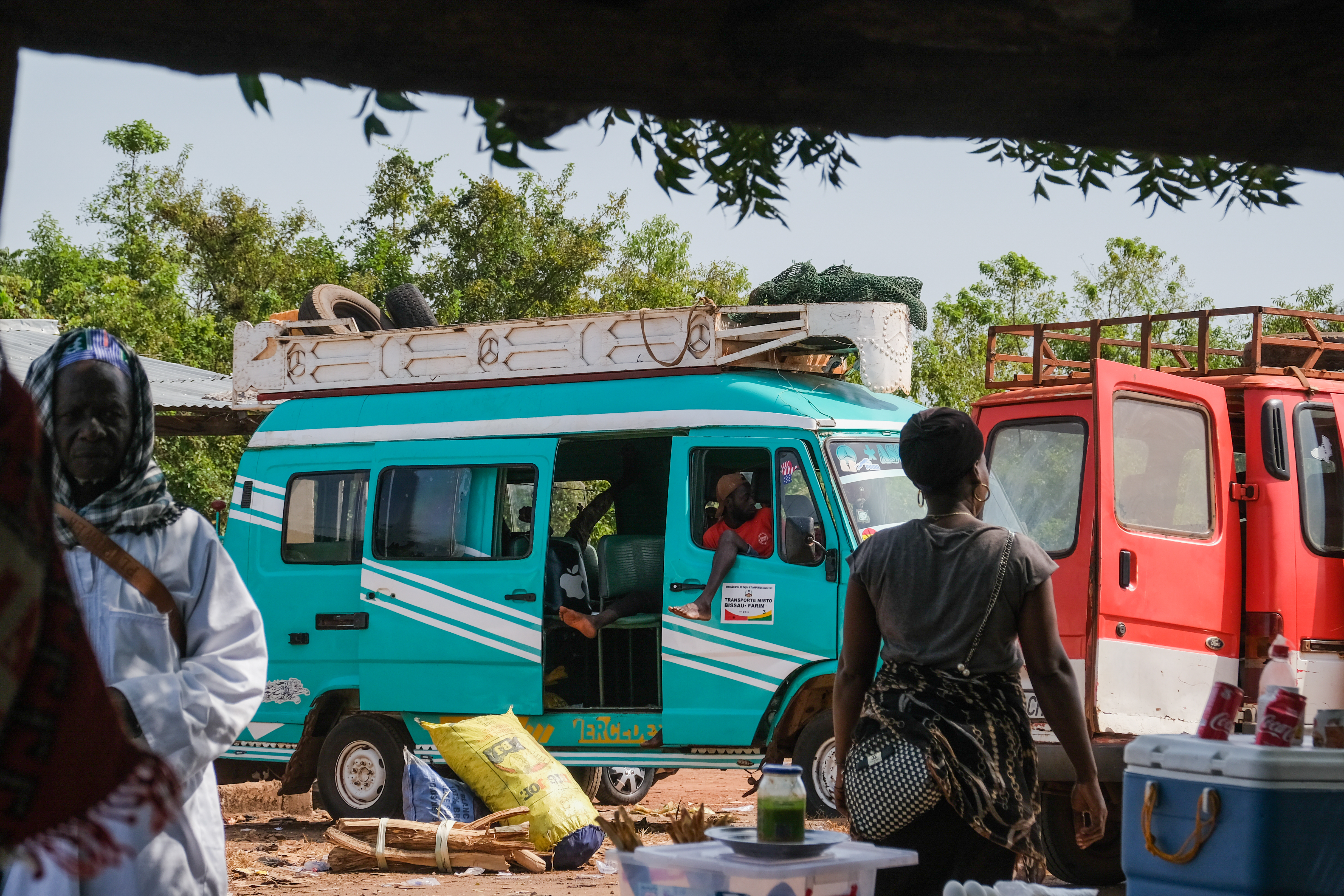
"Motion in the City", local transport to regions outside of Bissau. Photo: Ricci Shryock
The Power of Unusual Partnerships
The Solution Clinics have shown us the power of unusual partnerships and how the impact of ecosystem need not be limited to geographical borders, and connecting people across the world can create a stronger and much resilient one. Bringing Solution Holders from Guinea-Bissau, Responsible Leaders and representative of UN Agencies scattered across the world, has led to the emergence of trends and signals not previously apparent. Albeit, the value of the Clinics is better evaluated when looking at what the Solution Holders had to say post-Clinics.
In order to continuously improve our work and make sure that the initiatives we embark on are sustainable and useful to those being considered as beneficiaries, it is crucial that we carry out evaluations from the perspective of the Solution Holders, here’s what they had to say:
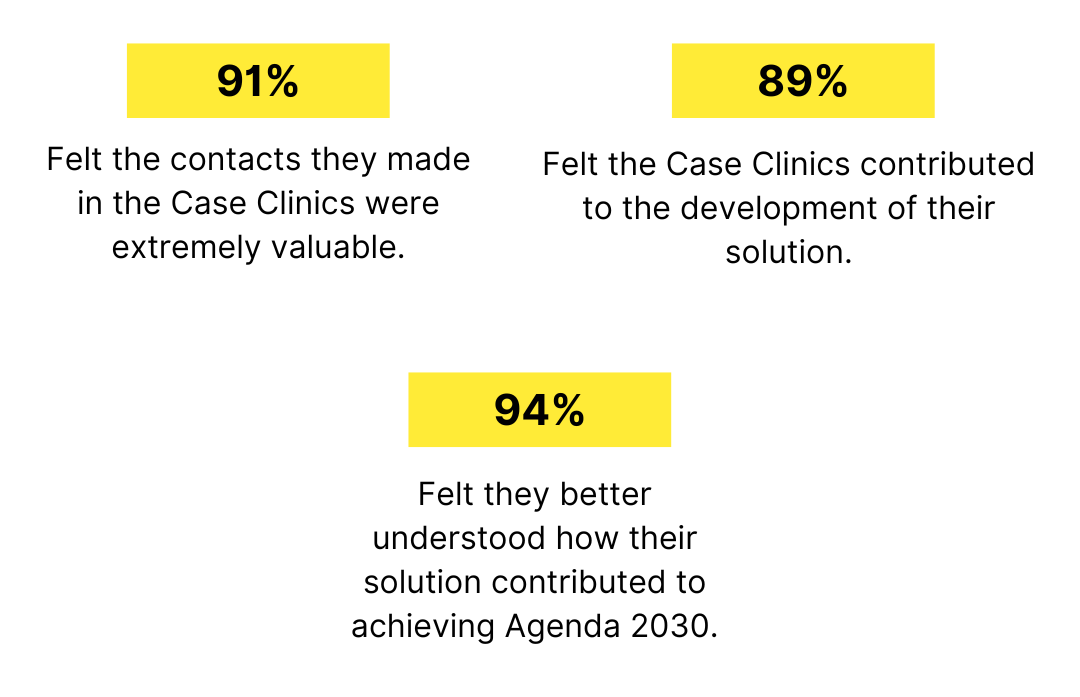
Statistics of evaluation completed by all Solution Holders following each Case Clinic.
The results demonstrate that there is indeed a necessity for a space in which solution holders in Guinea-Bissau get to discuss their solution and subsequent challenge, in an environment that is open and primarily encourages deep listening amongst peers. Curating a space that takes a step back from criticism and problem-solving, but rather build resilience through allowing the solution holder to really deconstruct their challenge, builds resilience for when they're inevitably faced with a new challenge.
When asked about if the Solution Clinics were beneficial, one solution holder responded:

Quote from solution holder, Maisa Cabral.
Another, when asked if and how beneficial the interactions with the RLN were, replied:

Quote from solution holder, Natacha Barros.
A Responsible Leader also stated:

The evaluations, conducted at the end of each Solution Clinic, were a prominent component, as it created an environment of constant improvement. Prior to each Clinic, the committee would review responses and make changes accordingly to suit the needs of future Solution Holders, in a cycle of constant improvement.
We make the path by walking
This collaboration in 2022 has shown us that there is much to be learnt and shared through unusual partnerships, not just between the Guinea-Bissau Accelerator Lab and the BMW Foundation but the wider portfolio of Solution Mapping in the field of development. In 2023, we hope to continue this partnership, by bringing the work closer to what is already being done in the Guinea-Bissau Country Office (CO) in the realm of Innovation. The Economic Cluster at UNDP Guinea-Bissau will launch an Innovation Hub, which will house the existing ecosystem of entrepreneurs and innovators in the country. By using the Innovation Hub to bring together the 11 solution holders for capacity building and networking, we hope to tap into new ways of looking at development through the lens of social impact. Additionally, the Economic Community of West African States (ECOWAS), as well as other UNDP Country Offices have shown great interest in the methodology used by the Solution Clinics, and we are working on ways to enable future collaborations with these organizations to further benefit those working to achieve Agenda 2030.
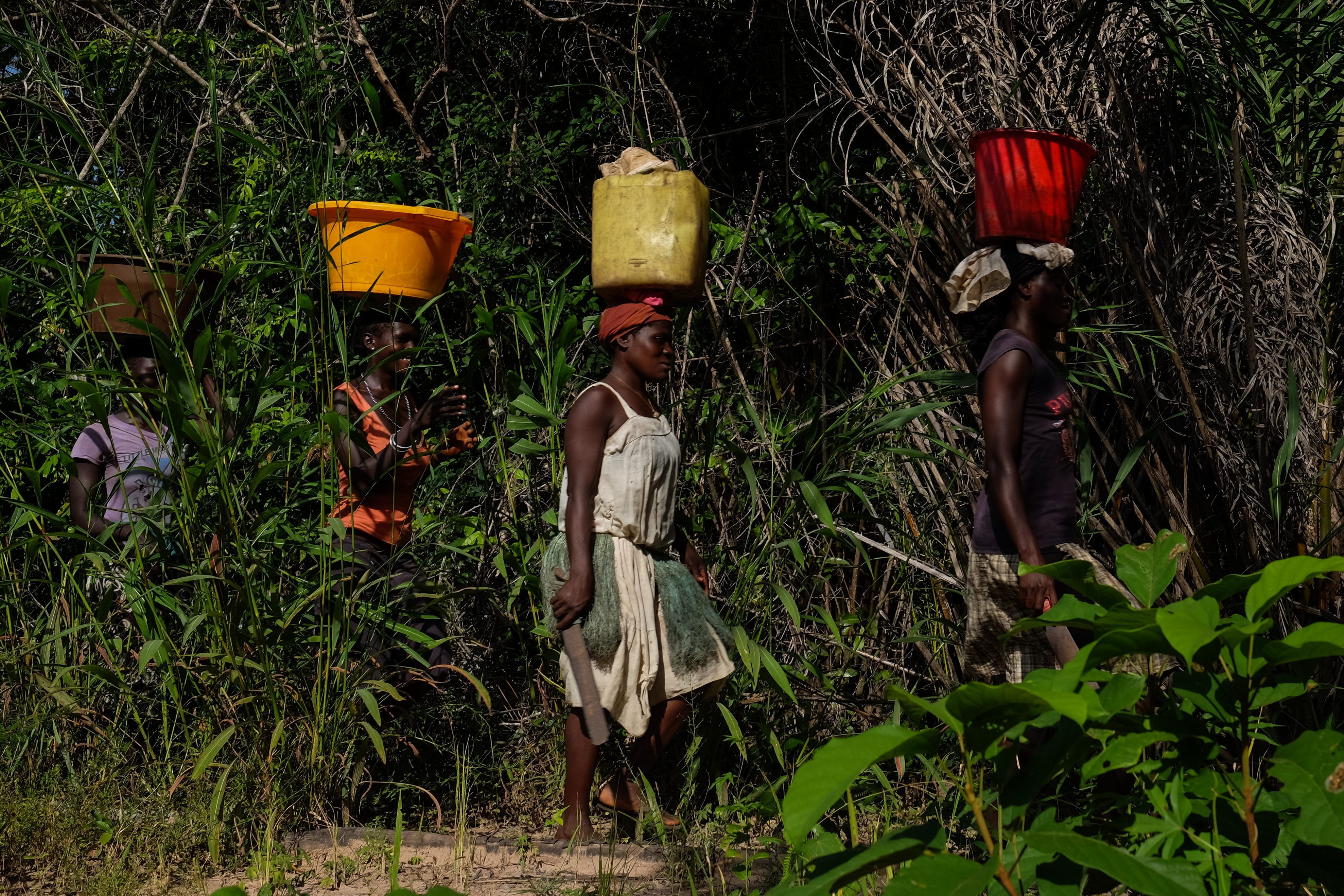
Women taking their produce to the market for sale. Photo: Ricci Shryock
This blog was co-written by the Guinea-Bissau Accelerator Lab, Ana Djú and the BMW Foundation Herbert Quandt, Thiago Souza da Costa and Thandi Dyani.

 Locations
Locations